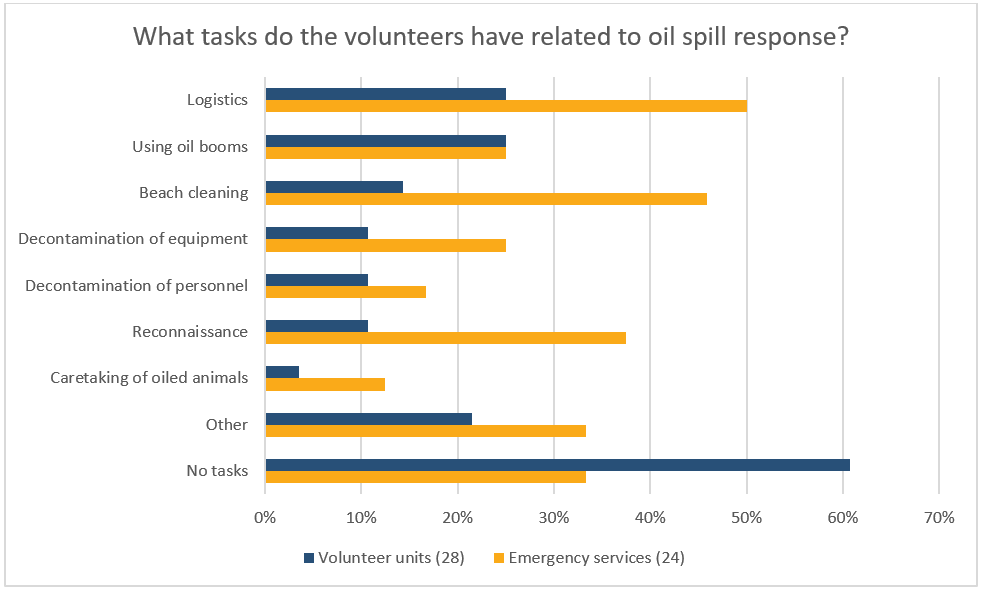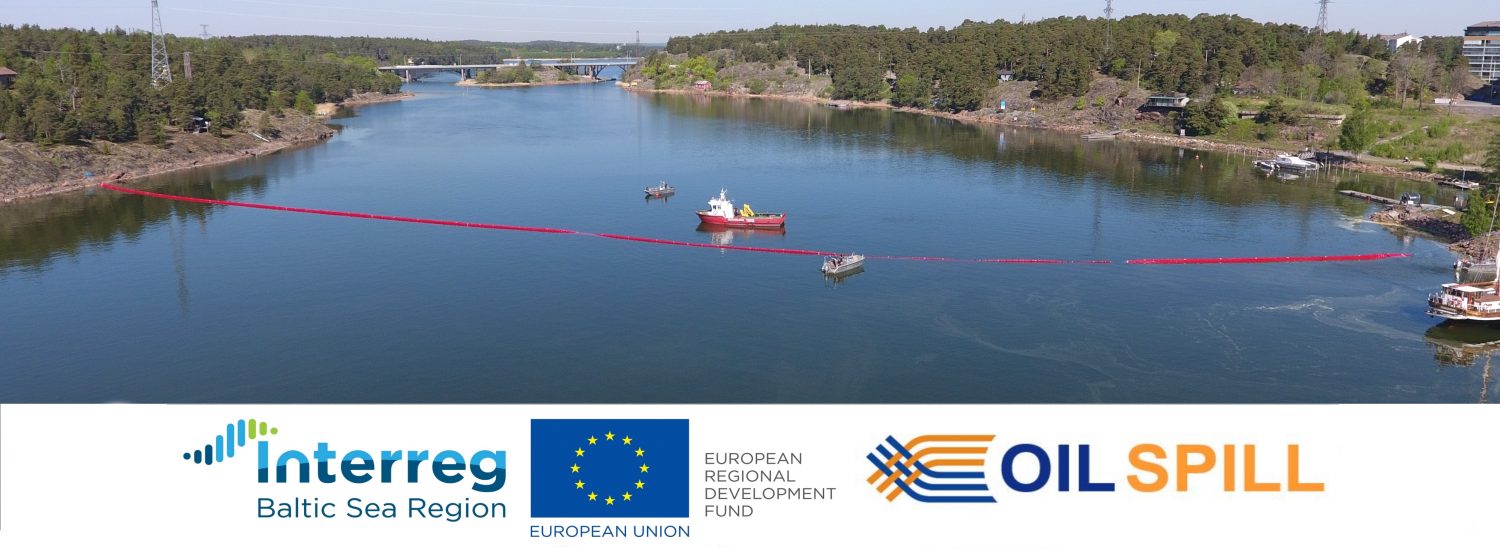Volunteer Participation in Oil Spill Response in Denmark
Written by Kia Friis Petersen, Danish Civil Protection League
When an oil spill hits the coast of Denmark, the respective municipality is responsible for the clean-up. However, most municipalities have given the task to the local fire department, as they are always on-call and able to respond within minutes. Many fire brigades cooperate with volunteer firefighters who typically assist on longer operations, with everything from firefighting to logistics and catering.
In a new survey, we have investigated the volunteers’ participation in oil spill response on shores and shallow waters. All fire brigades and volunteer units have been asked to participate in the survey by answering a questionnaire. 24 of 28 fire brigades and 28 of 50 volunteer units did so. Three of these volunteer units do not have a coastline in their area, but they were included in the survey as they could still assist in other areas.
According to the fire brigades, an oil spill that requires oil spill response occurs between “1 time per 5 years” to “5 per year” in their area. In some of the areas, there has not been an oil spill within their operation time (from 2016 to now). In the last 25 years, there have been only three major oil spills in Danish waters: Baltic Carrier in 2001, Fu Shan Hai in 2003, and Fredericia palm oil fire in 2016. We have learned a lot from these incidents, but hopefully, there will not be similar accidents anymore.
How can I help?
All the respondents were asked what tasks the volunteers have concerning oil spills at coasts and shallow waters. The tasks they perform are manifold, as seen in the table below. According to the volunteers, the most common tasks are logistics and using oil booms. However, most fire brigades have answered that the volunteers help with logistics, beach cleaning and reconnaissance.
On the other hand, a third of the fire brigades, who cooperate with volunteers, says the volunteers have no tasks related to oil spills. According to the volunteers who have participated in the survey, it is 60% who do not have any tasks. There are many reasons for this; some say it is because the fire brigades can handle the operation alone, or the volunteers are simply not part of the plan. A “positive” reason is that there have not been any oil spills.

Education is key
Of all the volunteer units that have answered the questionnaire, around 20% of the volunteers have had training linked to oil spill response. This includes basic training as a firefighter, training in using local equipment, drone pilots, logistics etc. The number might nevertheless be higher, as some do not perceive the basic firefighting training as oil spill relevant because it includes very little or no training specific for oil spill response. However, the general principles of response and command are the same.
The volunteers and fire brigades have also answered whether they find the training sufficient. Of those who have received some training, both volunteers and authorities generally say it is sufficient. However, with 80% of the volunteers without training, it does not say much.
On the other hand, the respondents have been asked whether they see a need to educate more volunteers. 39% of the volunteers have said yes, while 29% said no, as seen in the table below. For the fire brigades, it is the opposite – 21% have said yes and twice as many, 42%, have said no.

So, should we educate more volunteers for oil spill response in Denmark? Yes and no. In the areas where the volunteers have sufficient training, there is no need for more education. In the areas where the training is insufficient, there should logically be more training and education. And then, there are the areas where the volunteers have no education at all. Here it is necessary for the volunteer units and fire brigade to clarify whether the volunteers have a role in oil spill response and whether their competencies are sufficient.
Some of the respondents, both volunteers and authorities, have pointed out that it can be challenging to motivate the volunteers to train skills they hardly ever use. It is highly relevant to take this notion into account when deciding if the volunteers should have more training. But it is also important to evaluate whether the volunteers need the education now or is it possible to have the training on-site when necessary. For now, it is up to the individual fire brigade to make the decision, but by participating in this survey, they have been forced to evaluate the role of volunteers in oil spill response.

Leave a Reply